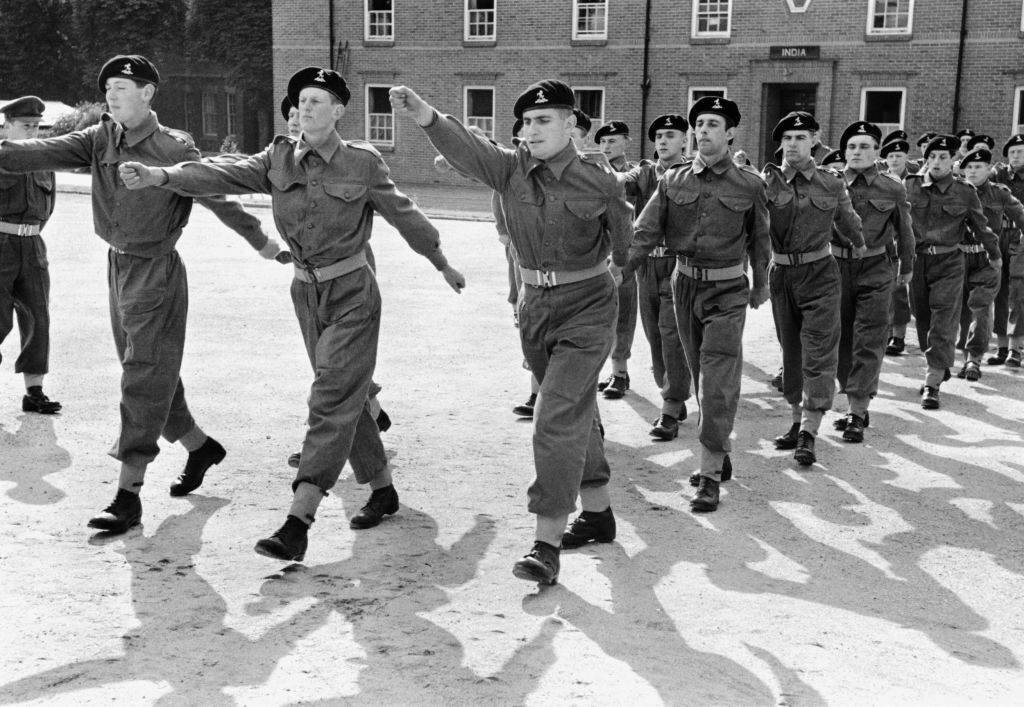The British defence minister appeared to have an unguarded moment on Wednesday, heaping praise on Sweden for having brought back conscription and saying he’d like to do the same, before his office moved to walk the comments back hours later.
An expression of admiration for Sweden and Finland conscripting their young people into mandatory military service, which leaves all with shared military experience and a high proportion continuing to serve in the reserve forces in their civilian lives, came from the British defence minister Wednesday.
Speaking alongside the Swedish defence minister after talks between the men in London, UK Defence boss Ben Wallace told reporters: “I think we’re all envious of both Sweden and Finland and their reserves. Part of that is a different cultural thing, part of it is those countries have had conscription continually”.
Sweden ended conscription in 2010 after over a century of continual operation, but a changing security picture in Europe including concerns about Russia and an inability to recruit enough soldiers voluntarily saw it return from 2017. Men and women are recruited on an equal basis, one of the only countries in the world to do so, but not everybody serves, with the government selecting a few thousand out of the pool of eligible teenagers every year.
Wallace particularly commented on the success of the return of the programme, saying Sweden had “re-invigorated” conscription, “and actually with great success.”
Continuing, the minister said: “So I think conscription and reserves often go hand-in-hand because everyone’s done it. I definitely think we’re all envious of how they use their reserves and I’d love to have a model like that, and I think we’ve got to recognise the lessons of Ukraine: how do we work on our resilience?”.
While the minister’s comments seemed pretty clear cut in that he described the means by which Sweden increased its reserve forces and then went on to say “I’d love to have a model like that”, his office nevertheless immediately tried to walk back his comments, which clearly are not in line with present British policy. As Agence France-Press noted in their report, edited to tone down Wallace’s comments and to incorporate the rowing-back in a later revision, the Ministry of Defence in London “denied that Wallace was himself calling for a return of national service, but was underscoring the ‘positive impact’ of reservists in Finland and Sweden.”
The wire service quoted a defence spokesman who clarified the remarks: “He praised the reservist models in those countries and did not in any way state he wanted to introduce conscription in the UK”.
Whatever minister Wallace meant when he was speaking, his comments certainly appeared to underline longstanding frustration over the inability of the British armed forces to recruit enough new people to keep the services at strength, a problem which has existed for many years. Remarkably, the outright shortage of troops continues despite the armed forces being slashed to a historically small size not seen since before the Napoleonic Wars, and the Royal Navy cut to a shadow of its former self.
The causes of this recruitment failure are broad, but low pay, “unacceptable” living conditions, and the gradual erosion of the Army’s traditions and culture all have their parts to play. Lower unemployment nationally, with the military seen as a job of last resort in some communities, and the highly publicised failure of the government to protect veterans from being dragged through the courts by victims both real and imagined of wars fought decades ago are also factors.
Conscription would certainly overcome some of these problems — by force — but brings its own problems, not least the moral implication of pressing young people into the armed forces, and the cost of putting hundreds of thousands of new recruits under arms. It was done in recent memory, however, with post-Second World War-era conscription not actually ending until 1960.
Many, if not most people in the United Kingdom will have a parent or grandparent who performed 18 months of compulsory military service or wartime service, if not even experiencing it themselves.
Ben Wallace’s comments on conscription in full:
I think we’re all envious of both Sweden and Finland and their reserves. Part of that is a different cultural thing, part of it is those countries have had conscription continually. Sweden paused it for seven years and have re-invigorated it, and actually with great success.
So I think conscription and reserves often go hand-in-hand because everyone’s done it. I definitely think we’re all envious of how they use their reserves and I’d love to have a model like that, and I think we’ve got to recognise the lessons of Ukraine: how do we work on our resilience? And part of that is about reserves, especially as the modern armed forces need more and more specialists, specialists you don’t need to use all the time. Specialists you need to access in times of war, particularly in areas like cyber, etcetera.
The greater requirement for reserves, we’re not going to pay people to sit around and do nothing when they’re highly specialised, but we are going to hopefully pay them when they’re reservists, to use them to mobilise at key moments and I think that will be really important.


COMMENTS
Please let us know if you're having issues with commenting.